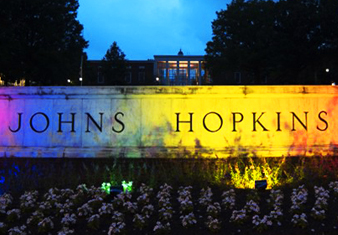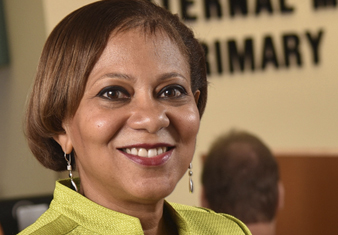
Seeking Diverse Talent
A comprehensive approach to increasing faculty diversity.
To achieve lasting excellence, it is crucial that the university recruits and retains a diverse community of professors and researchers. Johns Hopkins made a major $25 million commitment to boost its efforts in November 2015 with the launch of the Faculty Diversity Initiative. FDI funding is being used to conduct more expansive and inclusive searches, create a pipeline of talented and diverse scholars who might become faculty members and academic leaders at Johns Hopkins or peer institutions, and broaden support and mentoring opportunities.
In a short time, the FDI has already made significant progress:
- Each of our nine schools has prepared a faculty diversity action plan and adopted new protocols for faculty searches.
- The Target of Opportunity Program has supported the hiring of 10 underrepresented minority (URM) tenured and tenure-track faculty in the 2016–17 academic year; universitywide, we have hired 38 URM faculty who will join Johns Hopkins during the 2016–17 academic year. The Visiting Professor fund has facilitated campus engagements by five diverse scholars.
- The first Provost’s Prize for Faculty Excellence in Diversity was awarded in May 2016.
- In summer 2016, we awarded eight one-year fellowships to outstanding, diverse scholars through the Provost’s Diversity Postdoctoral Fellowship Program.
- In spring 2016, the university convened an unprecedented All-Chairs Meeting on Diversity, which gathered department chairs and other academic leaders from across the university at an interactive workshop focused on best search practices and protocols.
- The Diversity Leadership Council chose six more Idea Lab submissions to receive Diversity Innovation Grants in May 2016 to foster diversity and inclusion among the communities of Johns Hopkins.
To increase transparency and accountability for our work in this regard, the Office of the Provost released in September 2016 the JHU Report on Faculty Composition, its first public report providing the number of women and minority faculty by division and department along with data for underrepresented minorities. The report, planned to be issued biennially, establishes a baseline for measuring the university’s progress in diverse and inclusive hiring, and its public release puts Johns Hopkins among a relatively small number of top private universities in this country to provide such data at the department level.



